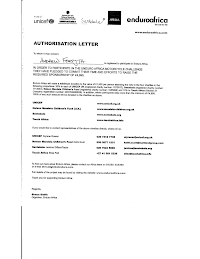 A recent modeling study suggests that existing HIV prevention strategies in rural South Africa, a nation with an HIV prevalence rate of 18% and logging 500,000 new infections per year, are simply insufficient to reduce the spread of the virus that causes AIDS.
A recent modeling study suggests that existing HIV prevention strategies in rural South Africa, a nation with an HIV prevalence rate of 18% and logging 500,000 new infections per year, are simply insufficient to reduce the spread of the virus that causes AIDS. Bärnighausen et al. (2009) estimated that the incidence rates – or the numbers of new cases per year – is 4.2 and 2.2 per 100,000 person-years for women and men in rural communities, respectively.
Worse, the study finds that high levels of HIV incidence in rural South Africa showed no signs of abating in women or men between 2003 - 2007, perhaps due to a lack of large scale changes in risk behavior.
The study examines 3 possible reasons for the stability of HIV incidence in these South African communities:
Either way, curbing the epidemic in rural South Africa will require vast economic resources and a renewed commitment by political and community leaders to bring HIV to a halt in that besieged country.
Worse, the study finds that high levels of HIV incidence in rural South Africa showed no signs of abating in women or men between 2003 - 2007, perhaps due to a lack of large scale changes in risk behavior.
The study examines 3 possible reasons for the stability of HIV incidence in these South African communities:
- Existing HIV prevention strategies are insufficiently scaled to reach rural populations;
- Programs fail to target prevention to the needs of those most at risk for infection; or,
- Governmental and other service providers are deploying ineffective prevention strategies.
Either way, curbing the epidemic in rural South Africa will require vast economic resources and a renewed commitment by political and community leaders to bring HIV to a halt in that besieged country.
Thankfully, it appears that the new South African Health Minister, Barbara Hogan, is indeed up to the task, which includes cleaning up the mess left by her incompetent predecessor. It turns out that former health minister Manto Tshabalala-Msimang was
a close ally of [world-class AIDS denialist and former] President Mbeki and someone who [shared] his sceptical attitudes on AIDS. Indeed, Ms Tshabalala-Msimiang's views are even more outlandish. At a conference in Toronto last year she extolled the virtues of garlic, lemons and beetroot as an alternative remedy for the disease. - The Independent, 8.10.2007
So, Hogan's plan is to resume a science-based approach to fighting HIV/AIDS in the country's rural and urban communities alike. Let's hope she succeeds before her administration succumbs quite literally to the disease.
Source: Bärnighausen, T., Tanser, F., & Newell, M-L. (2009). Lack of a decline in HIV incidence in a rural community with high HIV prevalence in South Africa, 2003 – 2007. AIDS Research and Human Retroviruses, 25 (4). [ePub ahead of print].




No comments:
Post a Comment